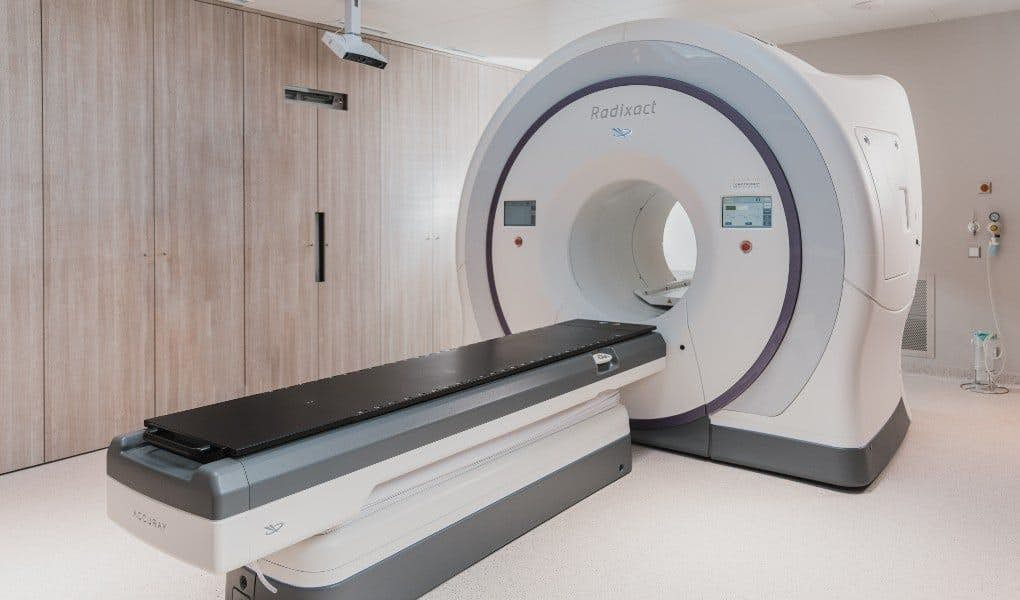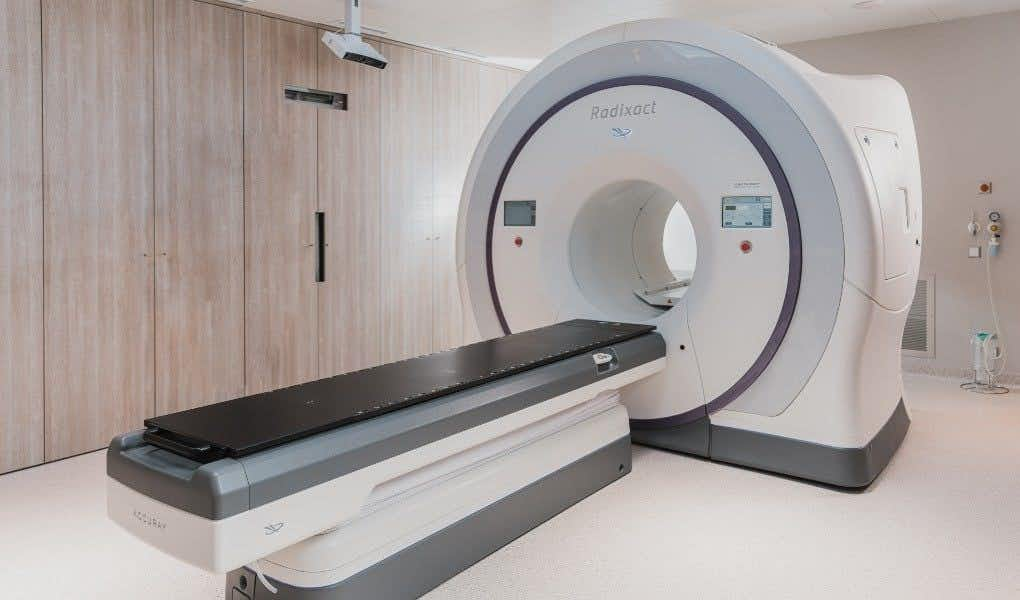On October 26, 2015, Buckelew, 32, presented for a chiropractic adjustment with Michael Axt, D.C. Prior to the appointment, Dr. Axt noted that Buckelew complained of neck pain, headaches, bouts of blurred vision, and ringing in the ears for the past several days. Dr. Axt adjusted Buckelew’s neck while he was lying down. When Dr. Axt asked Buckelew to sit up, Buckelew reported feeling dizzy and disoriented. Shortly thereafter, Buckelew became unresponsive.
Dr. Axt called 911, and an ambulance transported Buckelew to North Fulton Medical Center. Upon Buckelew’s arrival at the emergency department, the emergency room physician, Dr. Matthew Womack, ordered a CT scan of Buckelew’s brain and a CTA of his neck. The neuroradiologist, Dr. James Waldschmidt, read the CTA imaging. Dr. Waldschmidt noted, among other things, a potential dissection of the right vertebral artery. Based on the imaging results, Dr. Womack performed a lumbar puncture to rule out meningitis and encephalitis. Later that night, Buckelew was transferred to the ICU with a diagnosis of encephalitis and altered mental status.
Delayed Diagnosis
The following morning, while in the ICU, Buckelew underwent an MRI of his brain and an MRA. The tests revealed a massive non-hemorrhagic stroke of the posterior circulation of the brain. Upon receiving the diagnosis, Buckelew was treated with a heparin drip. This was the first treatment he received for his stroke, almost 24 hours after he presented at the emergency department. The heparin drip was unsuccessful and due to the delayed diagnosis, no treatment options were available. Buckelew now suffers severe brain damage and paralysis. More specifically, he received a diagnosis of “locked-in syndrome.” This is a rare neurological syndrome that causes complete paralysis except for the muscles that control eye movements. Buckelew has expended millions of dollars on medical expenses for his care. He will also require 24-hour care for the rest of his life.
The Allegations & The Trial
Buckelew, represented by Laura Shamp of Shamp Silk and Lloyd Bell of Bell Law Firm, alleged that the delay in diagnosis caused his brain damage and paralysis. His counsel argued that the imaging performed shortly after Buckelew’s arrival at the medical center revealed that he was suffering a stroke, and his physicians did not meet the applicable standard of care based on the results of the diagnostic imaging. Buckelew’s counsel contended that a series of miscommunications, hospital rule violations, and negligence by multiple providers delayed the diagnosis and treatment of the stroke until the next day, which resulted in irreversible and severe brain damage.
Trial in this matter began on October 4, 2022. Allegations of medical negligence were levied against the emergency room physician Dr. Matthew Womack, the radiologist Dr. James Waldschmidt, as well as the neurologist, critical care physician, physician assistant, and intensive care unit nurses who treated Buckelew.
According to the plaintiff’s counsel, Dr. Womack failed to inform the consulting neurologist of Buckelew’s chiropractic neck adjustment. The neck adjustment is a known stroke risk factor. Additionally, Dr. Womack failed to communicate the results from the CT angiography and lumbar puncture with the care team. The plaintiff’s counsel also contended that Dr. Womack failed to rule out vertebral artery dissension. In looking at Dr. Waldschmidt’s liability, the plaintiff’s counsel argued that he did not appreciate the indisputable acute and subacute vertebral-basilar artery occlusion. According to the plaintiff’s counsel, such negligence resulted in the delayed diagnosis and mistreatment of Buckelew’s stroke.
To find reliable, high-quality experts for this complex case, the plaintiff’s counsel turned to Expert Institute to custom recruit industry-leading professionals who could opine on causation and liability. Expert Institute found experts in various specialties, including emergency medicine, interventional neuroradiology, critical nursing, and chiropractic medicine.
The Defense’s Argument
Dr. Womack’s attorney argued that he met his standard of care by properly ordering imaging and conveying Buckelew’s known medical history to the other medical professionals. Dr. Waldschmidt’s attorney argued that he properly identified and communicated Buckelew’s tear in his arteries, which the other providers should have used to link to the stroke. According to the defendants, this case came down to causation. They argued that Buckelew’s stroke was so severe that his outcome would not have changed regardless of when he received treatment for the condition. The defendants argued at closing that the proximate cause of Buckelew’s injury was the chiropractor’s performance of a spinal manipulation when Buckelew had a two-week history of headaches. According to the defendants, the chiropractor is solely responsible.
The Verdict
On October 20, 2022, after a three-week trial, the jury delivered a verdict in favor of the plaintiff. The jury awarded Buckelew $75 million, which included $29 million in medical expenses and $46 million in non-economic damages. Dr. Womack was found to be 60% at fault and Dr. Waldschmidt was found to be 40% at fault for missing the arterial blockage causing the stroke when he read Buckelew’s images. Buckelew and Dr. Axt, who was initially named as a defendant and later dismissed, reached an amicable resolution.
Key Takeaways
Here, the set of facts and the plaintiff’s severe medical condition likely elicited sympathetic responses from the jury. Life-altering and debilitating injuries, such as locked-in syndrome, generally garner verdicts in favor of the plaintiff and high awards for the plaintiff.




